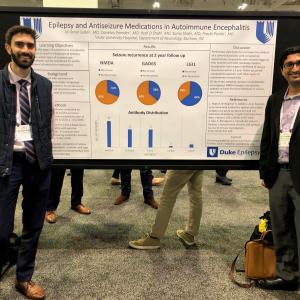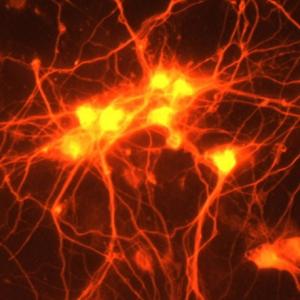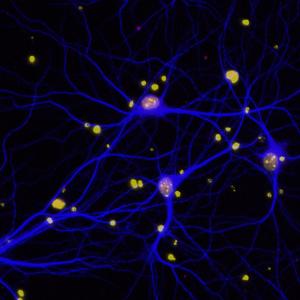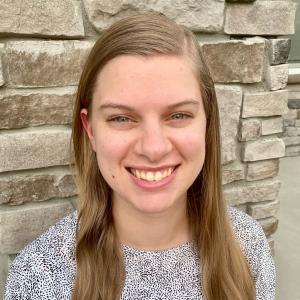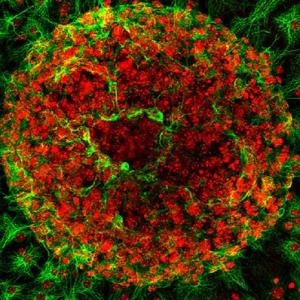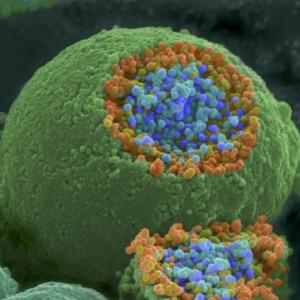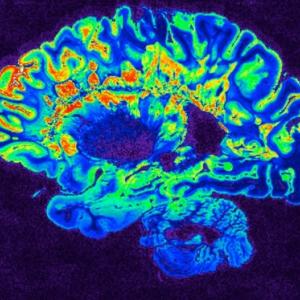Duke Neurology 2022: A Year in Review (Part 1 of 2)
The Duke Neurology Department continued to grow and advance its missions of patient care, research, and training the next generation of neurology providers in 2022. Highlights from the first half of our calendar year include national and Duke-wide awards recognizing our faculty’s contributions to the field of diversity, inclusion, and neurology as a whole. The same period also saw the growth of the new Duke/UNC Alzheimer’s Disease Research Center and three of our neurologists don helmets and get in their racing care.
Duke Neurology at AES 2022: Highlights from Nashville
Members of the Duke Neurology Department advanced the field of epilepsy care, research, and education at the 2022 meeting of the American Epilepsy Society (AES) in Nashville this week. This year, our faculty and trainees gave two lectures and co-authored eight new abstracts, for a total of more than 150 submissions from Duke to the AES since 2000.
Fellow Spotlight: Shalu Bansal, MD
As a medical student, Shalu Bansal, MD, was drawn to family medicine, a specialty that provided opportunities to treat a variety of conditions while also getting to know her patients. While providing primary care, Bansal saw the deleterious effects sleep disorders had on her patients, and decided to pursue our sleep medicine fellowship. For this week’s Spotlight interview, Bansal talks to us about how treating sleep disorders makes a difference in the lives of her patients.
Duke Neurology Research Round Up, November 2022
This October, members of the Duke Neurology Department advanced the fields of clinical and translational neuroscience, contributing to 14 new peer-reviewed studies and one book chapter. Highlights from our recent research include validation of new automated measures that evaluate handwriting for dystonia symptoms, a discussion of the effects of blood pressure on head and facial pain, and a discussion of presentations of a neuroimmune disorder known as MOGAD.
Duke Neurology Research Round Up, October 2022
Members of the Duke Neurology Department contributed to 12 new peer-reviewed journal articles published this September. Among other findings, this research answered important questions about the use of telehealth to manage chronic neurological conditions, investigated an alternative therapy’s potential benefit for fighting ALS, and synthesized the latest research findings about the role of the immune system and infection in the genesis of Alzheimer’s disease.
Staff Spotlight: Holly Johnson, MS, CNIM
Even the most non-invasive surgeries pose potential strains and challenges for the central nervous system, making careful, real-time monitoring of the brain and spinal cord a requirement for a safe procedure. As one of Duke’s intraoperative neuromonitoring technologists, Holly Johnson, MS, CNIM, performs this monitoring for patients undergoing surgeries at Duke University Hospital.
Duke Neurology Research Round Up, September 2022
Members of the Duke Neurology Department contributed to 12 new peer-reviewed journal articles published this August. Highlights include a review article examining evoked potentials used for deep brain stimulation in Parkinson’s, the healthcare received by veterans with epilepsy, the optimal stroke treatments for patients with cerebral venous thrombosis, and other topics.
Duke Neurology Research Round Up, August 2022
Members of the Duke Neurology Department contributed to eight articles and two correspondence letters published in peer-reviewed journals this July.
U.S. News & World Report ranks Duke University Hospital 23rd in nation for Neurology & Neurosurgery
U.S. News & World Report ranked Duke University Hospital as the top hospital in North Carolina and the 23rd best across the nation for neurology and neurosurgery in its 2022-2023 hospital rankings. The annual rankings, which assessed more than 4,500 hospitals nationwide, analyze and integrate dozens of medical and surgical services.
Duke Neurology Research Round Up, July 2022
This June, members of the Duke Neurology Department contributed to 12 new peer-reviewed journal articles as well as two new book chapters. Among other findings these studies uncovered retinal differences that may one day act as early biomarkers for cognitive impairment, population-based studies that will improve treatment for stroke and other conditions, and investigations of hydrogel scaffolds as potential therapies.

